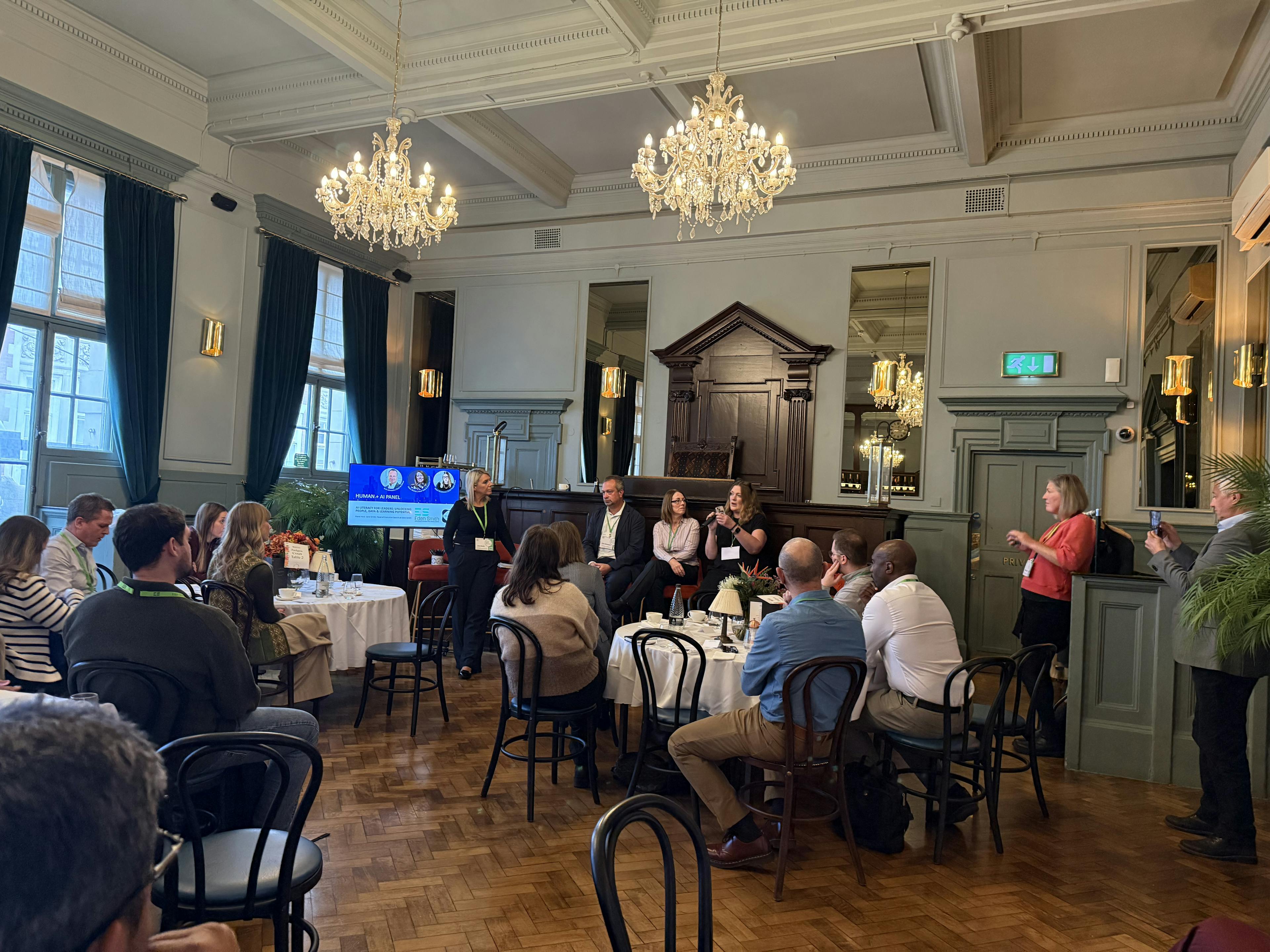On 15 October, Corndel partnered with Eden Smith to host the first session in their Human + AI series – a space for senior leaders to explore what’s working, what’s not, and what needs to change when it comes to AI adoption.
Leaders from across Data, AI, HR, and Transformation sectors joined to share real-life examples of progress and challenges. Together, they explored how to move from AI theory to confident, people-led action.

Erik Schwartz: Leadership first, then technology
Erik Schwartz, Chief AI Officer at AI Expert, opened with a clear message: “AI is only as strong as the leadership behind it.” Most of those in attendance admitted they were still in the early days of AI adoption. Copilot was popular, but few had moved beyond basic trials and usage.
He reminded the room that experimentation is the best way to build confidence – suggesting hackathons, quick prototypes, and real use cases to prove value. His advice: start small, solve real problems, and let success scale naturally.
Erik’s examples from Elsevier and Comcast showed how focused leadership can turn small AI pilots into measurable gains in productivity and efficiency. But, as Deloitte’s 2025 research highlights, while 74% of organisations are investing in AI, only a quarter have a clear strategy. Leadership, not technology, is often the limiting factor.
Helen Blaikie: Building a data-driven culture
At Aston University, Helen Blaikie has seen how cultural change unlocks data-driven decision-making. By setting a clear 2030 vision, appointing data champions, and celebrating every small success, her team built trust and momentum across the institution.
Their efforts, including training 600 colleagues in data and AI, directly connected data work to real-world outcomes like employability rankings.
Helen’s experience reflects a wider truth: successful AI adoption depends on fresh, relevant data and confident people. EY’s own global investment of £1 billion in AI led to similar insights – prioritise the few use cases that matter, equip everyone with foundational skills, and make progress measurable.
“AI is only as strong as the leadership behind it.”

Helen Matthews: Tackling fear and building trust
Helen Matthews focused on the human side of AI. In a live poll, 65% of employees said they feared job loss, 45% resisted change, and 91% wanted clearer, responsible AI policies.
Her advice: start with why. Be transparent about what AI can and can’t do, use data to understand workforce skills, and create a clear maturity model for AI learning – from awareness to role-specific confidence.
She highlighted how the Microsoft AI Academy, delivered in partnership with Imperial Executive Education, enables organisations to do just that – combining technical capability with thoughtful, human-led learning.
Helen also underscored the power of mentoring, peer learning, and coaching to build trust and readiness. When people feel included in the AI journey, adoption accelerates.
The panel discussion revealed several business fundamentals:
- Start small and stay focused. Pick one problem, solve it with AI, and show results.
- Bring people into the process. Frontline teams know where real opportunities lie.
- Encourage collaboration. HR and technology leaders must work together to create flexible, human-first policies.
- Invest in understanding your data. It’s the foundation for mapping talent, planning skills, and preparing for the future.
McKinsey estimates AI could add £3.6 trillion to global productivity – yet most organisations haven’t embedded AI into everyday workflows. The opportunity is clear: human-led value must sit at the heart of every AI ambition.
What’s next?
This was just the beginning. The next Human + AI session will explore how to build human capability and AI readiness at scale.
AI adoption isn’t a spectator sport. It takes leadership, experimentation, and a focus on people. Organisations that get this right won’t just keep up, they’ll lead.



